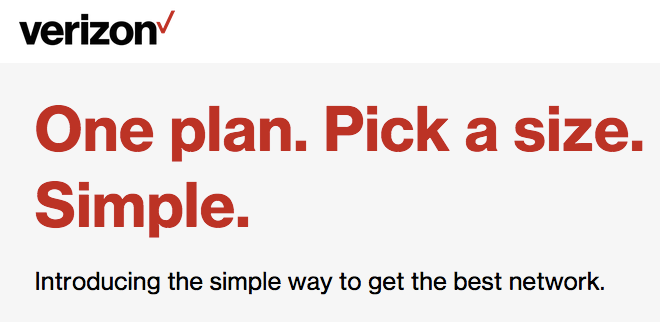Questions to Carriers: What are prepaid, postpaid and no contract plans?
Over the last year, US consumers have seen some major shifts in the mobile carrier market. From rolling data options to doing away with contracts, carriers seem to continually attempt to one-up one another to convince consumers to switch providers. The most recent transition in the four-carrier power struggle is the unbundling of device payments from the service contract.
The concept of unbundling the device from the service provided sounds like it would make things less complicated for consumers. Now, consumers know the price of the device and the price of service. Simple right?
Kind of, but not exactly “simple”. Carriers did away with device subsidies more than anything. Now consumers no longer get what feels like a “free” device that’s subsidized within their marked-up service contract. Instead, carriers have introduced new device financing and upgrade programs to help soften the sticker shock that comes with buying a device at full price.
While these changes have forced carriers to be more transparent, they haven’t made things much easier to navigate. Now consumers have to decide between prepaid or postpaid plans, no contract options AND financing programs?!
This week Questions to Carriers seeks to define the now many different options consumers have when deciding on mobile carrier service.
So, what is the difference between prepaid and “no contract”?
Prepaid options have been around on all four major US carriers and their MVNO partners for a while now. These plans don’t come with contracts. Prepaid customers pay for a specific amount of data/minutes/texts that expires after a fixed period, typically 30 days. When you hit your data/minutes/texts limit your service is shut off. You can choose to add-on more or live without until your next pay period. Customers do not have to worry about overage charges with prepaid plans.
So prepaid implies straightforward billing. But it used to imply access to a specific set of lower-end devices too.
Or as CNET’s Maggie Reardon put it:
“It used to be that prepaid cell phone users had to sacrifice the ability to get cool devices for cheap service.”
The latest or “coolest” devices come with expensive price tags. So carriers decided to subsidized phone costs to give customers easier access to these expensive phones. But if carriers were going to give customers free (or serious discounts) on phones that can run up to $949 (the new iPhone 6S for example), they needed to ensure they were making money too, i.e. two-year service contracts.
Now that carriers have unbundled phone payments from the service provided, prepaid phone users have more phone freedom too. Most carriers now allow prepaid users to bring their own phone or purchase a new phone at full price, while on a prepaid plan. Although porting your phone number to a prepaid plan may still be a major headache.
So is “prepaid” what mobile carriers mean when they advertise their new “no contract” plans?

Prepaid and “no contract” mean very different things in terms of billing, not so much in terms devices anymore.
But before you can really understand “no contract” options, you must understand postpaid service plans, which come with more strings attached.
So what is a postpaid plan?
Postpaid service agreements are plans that are billed to consumers based on usage. Consumers choose a bundled service plan with (typically) unlimited talk/text and a data allotment that matches their monthly usage best. At the end of each month, the carrier tallies up their data usage and sends them a bill. The minimum payment will always be the flat rate bundle price you signed up for (plus tax and fees), unless you go over your preset limits. If you do, prepare to be hit with hefty overage prices.
Interested in a phone financing or upgrade program that carriers (and Apple) introduced to replace subsidies? Prepare for a postpaid-only service option. If you don’t want want to pay full-price for a new device or bring your own, you will be on a phone financing plan that will require the start postpaid service.
So what do carriers mean by “no contract” then?
“No contract” means no specific time commitment required, like the former two-year contracts. Similar to prepaid in the fact that there is no time commitment, but different because these “no contract” options are paid upon usage, meaning they are postpaid plans.
By unbundling phone payments from carrier service contracts, some mobile providers have been able to do away with the typical two-year service contract requirement. By having consumers sign a two-year service contract, carriers ensured customers would stay with them long enough to essentially pay back the worth of the previously subsidized device.
So now carriers find new ways to lock customers into “contracts” with their upgrade programs.
Because if you are on a 24-month device payment plan that required postpaid service from the carrier you are financing from, then it isn’t much different than a 2-year contract right?

While carriers advertise all these new options as simple solutions to outdated contracts, it seems mobile carrier plans may be more confusing than ever. Between prepaid, postpaid and now no contract options, more choices isn’t really equating to simplicity for consumers.